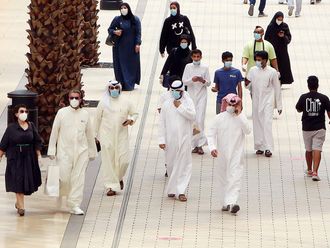Manama: Tunisians said that they disagreed with the claim that another country was the birthplace of Arab uprisings.
Delivering a lecture in Tunisia, journalist Robert Fisk last week told his audience that the "Arab Awakening", as he called it, began in Lebanon in 2005.
"So when did the Arab Awakening begin? Personally, I believe it began in Beirut back in 2005, when over a million people assembled in the centre of Beirut," he said during the talk that concluded a workshop by the Journalism Foundation.
The theory was however rejected by Tunisians who have regarded their country as the birthplace of the uprisings that resulted in regime change in several Arab countries.
"Linking what happened in Tunisia with what happened elsewhere years ago is a bit far-fetched," Mohammad Fareh, a technician, said. "Nobody had foreseen it, not even some of the most potent European intelligence services, and it was spontaneous to a large extent. People did not have to emulate any model and behaved according to their senses, emotions and instincts," said the Tunis resident who was on Habib Bourguiba Avenue on January 14 to put pressure on the interior ministry.
Omar, a teacher, said that people in December and January reacted to a deepening sense of injustice and an accumulation of frustrations.
"It was not even properly organized and people could see there was no leader, no fiery speeches, no guidelines," he said. "Following days of unrest in several cities, people focused on the capital, the seat of the government. They did not need to follow any example, especially that crowds are a common occurrence at football matches and concerts."
For Akila, also a teacher, the slogan "The people want the downfall of the regime" was a testimony to the Tunisian spirit.
"The slogan that echoed throughout the Arab world and beyond was first used at the Tunisian universities in the 1970s by students calling for reforms," she said. "People used it during the revolution in Tunisia because they could relate to it and was appropriate. The Tunisians did not think of other countries and even after the success of the revolution, they did not really boast about it and they did not in any way seek to export it to any other country," she said.
Comments posted online by the news site Tunisia Live were also skeptical about the birthplace claim.
"About a month or so after the ouster of Ben Ali, I recall an article by Robert Fisk in which he wrote that democratisation was impossible in Tunisia," Marwan wrote. "Now he's visiting Tunisia trying to convince everybody it all actually began in Lebanon."
Writing in February 2011, Fisk argued that "the truth, of course, is that the Arab world is so dysfunctional, sclerotic, corrupt, humiliated and ruthless and so totally incapable of any social or political progress, that the chances of a series of working democracies emerging from the chaos of the Middle East stand at around zero per cent."
Writing in the journalist's defence, Sadab urged those "who are saying all this bad stuff about Robert Fisk to read his book, ‘The Great War for Civilisation: The Conquest of the Middle East' first and then talk or comment."
"He is a staunch defender of the Palestinian cause… [He] is a harsh critique of US foreign policy and has covered the Middle East for more than three decades," he wrote on Tunisia Live.
However, Afifi refused to heed the call, saying that "all those attributes mean nothing to me, even if they are true."
"Besides, being a harsh critic of the US foreign policy does not add to his badges of honour, in my view. Al Jazeera was more instrumental in the Arab Spring than this guy's 30 years can be."
According to the Tunisia Live report, Fisk called Al Jazeera television network a "weapon of mass persuasion," and accused it of attempting to push a political agenda in line with the Qatari government's interests.












